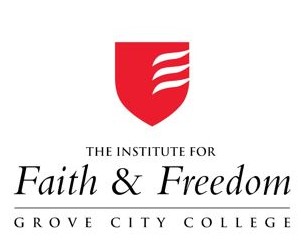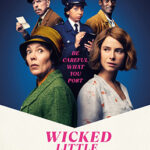Hollywood Contradictions: Public Prefers Dire Future to Heroic Past

Hollywood’s intensifying awards season exposes an obvious gap between an entertainment establishment that cherishes heroic stories from the noble past and a movie-going public that strongly prefers comic book visions of a dangerous, demented, dystopian future. There’s less overlap than ever before between the list of biggest movie money-makers for 2014 and the leading candidates for Tinseltown’s top awards, revealing a perplexing contradiction between the movies that insiders choose to honor and the films the public honors with its box office bucks. .
Among the leading releases in commercial terms, a full eight of ten set their action in futuristic worlds where a few eccentric heroes battle conspiratorial forces that threaten the very survival of humanity. The remaining two blockbusters – The Hobbit: The Battle of the Five Armies and Maleficent – both offered dark fairy-tales with similar schemers deploying frightening power with catastrophic consequences. Even The Lego Movie and Big Hero 6, despite their brilliant and colorful animation, tell stories of corporate and official collaboration in nefarious plots to achieve absolute dominance.
As if to balance these apocalyptic perspectives with the comforting reassurance of the familiar, each of the box office top ten relied on well-established brand names. Seven are sequels: The Hunger Games: Mockingjay-Part 1; Captain America: The Winter Soldier; Transformers: Age of Extinction; Maleficent; X-Men: Days of Future Past; The Hobbit: The Battle of the Five Armies; and Dawn of the Planet of the Apes. Two others are based on popular Marvel comic books: Guardians of the Galaxy and Big Hero 6. The most original of all the films – The Lego Movie –was inspired by one of the best known and enduring popular children’s toys on the planet, once again conferring the all important aura of familiarity.
None of these popular favorites will compete seriously for major Oscars – other than technical awards and Best Animated Film. In contrast to the tough future on offer from the box office champs, the awards favorites emphasized real life hero stories from the past – like the three tormented British geniuses in The Imitation Game, The Theory of Everything and Mr. Turner; the Civil Rights icon Dr. Martin Luther King in Selma; the intrepid hiker Cherly Strayed in her 1990’s trek in Wild; or the indomitable American war heroes Chris Kyle and Louie Zamperini in American Sniper and Unbroken, respectively. Foxcatcher hardly brings to life heroic figures, but closely follows events leading toward a well-documented 1980’s murder, while Boyhood remains so honestly rooted in the past that it filmed its earliest scenes some 13 years ago, when its protagonist was only seven. Birdman, another Oscar leader, features a main character (Michael Keaton) haunted by the superhero he played decades earlier and obsessed with presenting a play based on a collection of Raymond Carver short stories from 1981.
None of these acclaimed projects performed especially well at the box office, contributing to the disappointing returns for Hollywood as a whole. In 2014, both tickets sold and cash collected went down sharply for the movie industry. Between industry insiders who chose to look backward with fond nostalgia and the movie-going public that preferred to look ahead with vaguely paranoid, super-natural dread, the year’s most celebrated films left the present moment mostly de-emphasized and unexplored. The real Dr. King may have spoken about “the fierce urgency of now” but movies that did best at the box office and with awards season voters adopted a less immediate focus.
The next big vote after the Oscars will help bring the presidential race into focus, with the important Ames, Iowa Straw Poll looming in August of this year. White House contenders might learn lessons from the obvious contradictions in the most recent movie returns: yes, insiders and pundits might reserve their highest praise and best efforts for invocations of past heroism by the likes of FDR, Reagan or JFK. But in spite of an improving economy, the broader public remains more engaged by grim, even conspiratorial visions of dire, dangerous years that seem to lie ahead.
A version of this column appeared first in USA Today.




















